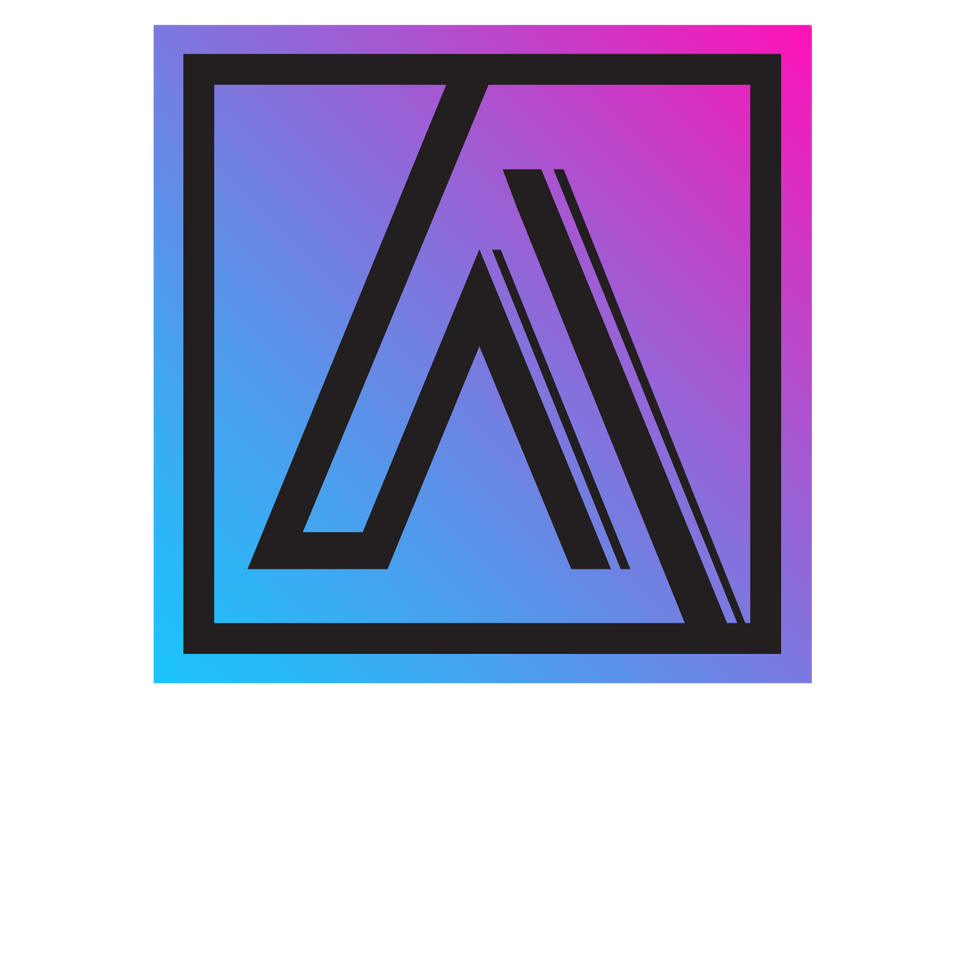
This article is for educational purposes only. Nothing in this article shall constitute legal or other professional advice or an opinion of any kind. Please contact Amar-VR Law, or your own legal counsel, if you have any questions regarding a specific legal issue.
IMPORTANT UPDATE: Unity has announced changes to their use models, with particular changes to their Runtime model. Please see our new article for more details on the changes and how this might affect you.
With thousands of high-quality creative assets available to developers and studios in the Unity Asset Store, you’ve likely considered making a purchase for your own projects. Including Unity assets in your Video Game is common for new and established developers alike, and can help you take your fledgling game to the next level.
But there are major considerations to be made when using Unity assets, especially when it comes to the ownership of your Video Game.
Read on to learn about the implications of using Unity assets in your game, and how you can best utilize Unity assets to create a game that you legally own.
How Do Copyrights Affect Video Games Made with Unity Assets?
Copyrights have a huge impact on Video Games made with Unity assets.
When you create a Video Game using downloads from the Unity Assets Store, you receive the benefits of quick and professional work that might be outside of your team’s current capabilities in terms of technical skills or timelines. But there are certain restrictions to keep in mind as well.
The artist who created the asset you purchased in the Unity Asset store will retain the copyrights to that asset, so you will be subject to the terms and conditions of their End User License Agreement (EULA). You won’t need to pay them any added fees or royalties, though you will need to take extra steps if you plan to sell your game or transfer ownership in the future.
Since they own the copyrights to their work, there are limitations on what you can do with their work under the license agreement.
Make sure you understand the effects of copyrights on your end product before using Unity assets to build your Video Game.
Licensing vs. Ownership

So, why do copyrights have such a significant impact on Video Games made with Unity assets? Because when you make purchases from the Unity Asset Store, you are actually purchasing a license to use that asset. You aren’t purchasing ownership of the asset itself.
The copyrights remain with the original artist so that they can continue to control and profit from their original artwork.
Licensing an asset from the Unity Asset Store gives you the right to use another artist’s work in the development of your Video Game - with a few stipulations, of course.
Most assets in the Unity Asset Store are available for commercial use, but don’t assume! Be sure to confirm this in the license agreement for the specific asset you’re using.
Another big consideration to remember is that you do
not
own the source code for the Unity assets, and your license to use them is non-transferable. This means that if you sell or transfer ownership of your Video Game, the new owner will need to enter their own licensing agreement in order to continue using those assets without violating the End User License Agreement.
Licensing an asset and owning the copyrights to an asset are two very different things, so make sure you fully understand what each one means for you as a developer before putting in the work.
Will I Own My Video Game Made with Unity Assets?

Yes, probably.
With the blood, sweat, and tears that go into developing a Video Game, you’ll want to ensure that at the end of the day, you actually own your creation. But how do you make sure you’re the legal owner when your end product uses other artists’ work?
In short, by using their work to create something totally unique.
When you use a Unity asset, you need to add a significant amount of your own work to the Video Game, making it clear that your work is a completely different end product than the asset alone. If you’ve created a storyline, characters, dialogue, music, or other creative assets that come together to create a full Video Game, you have likely already added enough original work to satisfy this condition.
This means that when all is said and done, you will own the Video Game as a whole, but you will
not
own the individual creative assets that were used to make the game.
If you haven’t added a significant amount of your own work alongside the Unity asset(s) that you’ve purchased, you could be in violation of the license agreement as you are, essentially, reproducing the asset and presenting it as your own work.
Don’t do this! Reselling assets from the Unity Asset Store is a major violation of the terms of their EULA, and could have tough legal consequences for you and your studio.
As long as you are using the assets that you’ve purchased as a stepping stone to build a unique Video Game, and you aren’t violating any license agreements, you will own your finished Video Game.
Conclusion
Understanding Copyright law in Canada is a must for Video Game developers. Failing to do so can be a costly mistake.
A Video Game Lawyer is an essential part of your team if you plan to publish or sell your Video Game. The money you save by handling your own Copyrights probably won’t be worthwhile if you end up in court due to an oversight or misunderstanding of Copyright law that could have been easily avoided with some legal guidance.
Contact Amar-VR Law if you have questions about how Copyrights affect your Video Game, or if you need assistance solving a Copyright issue that’s already come up.

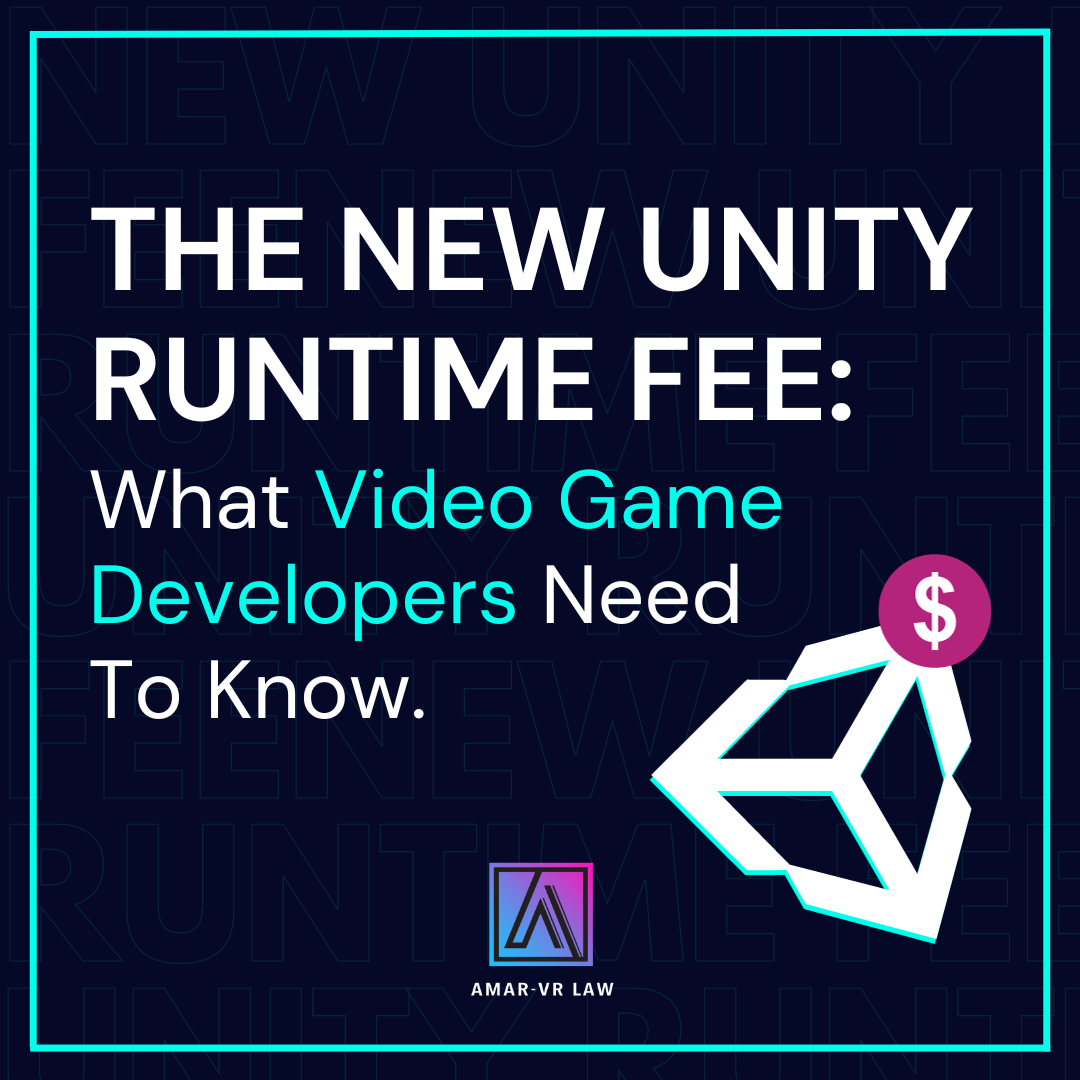
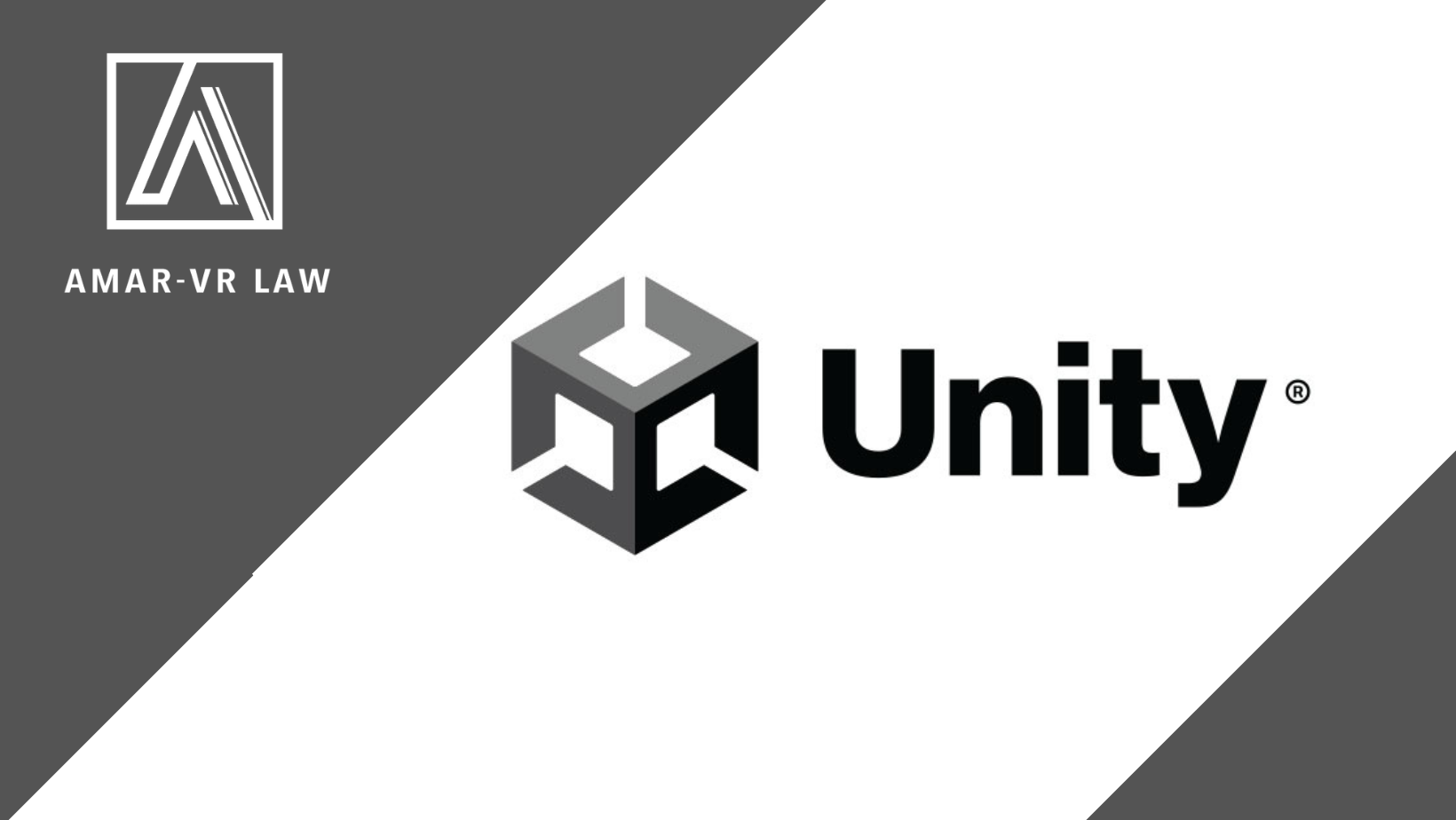
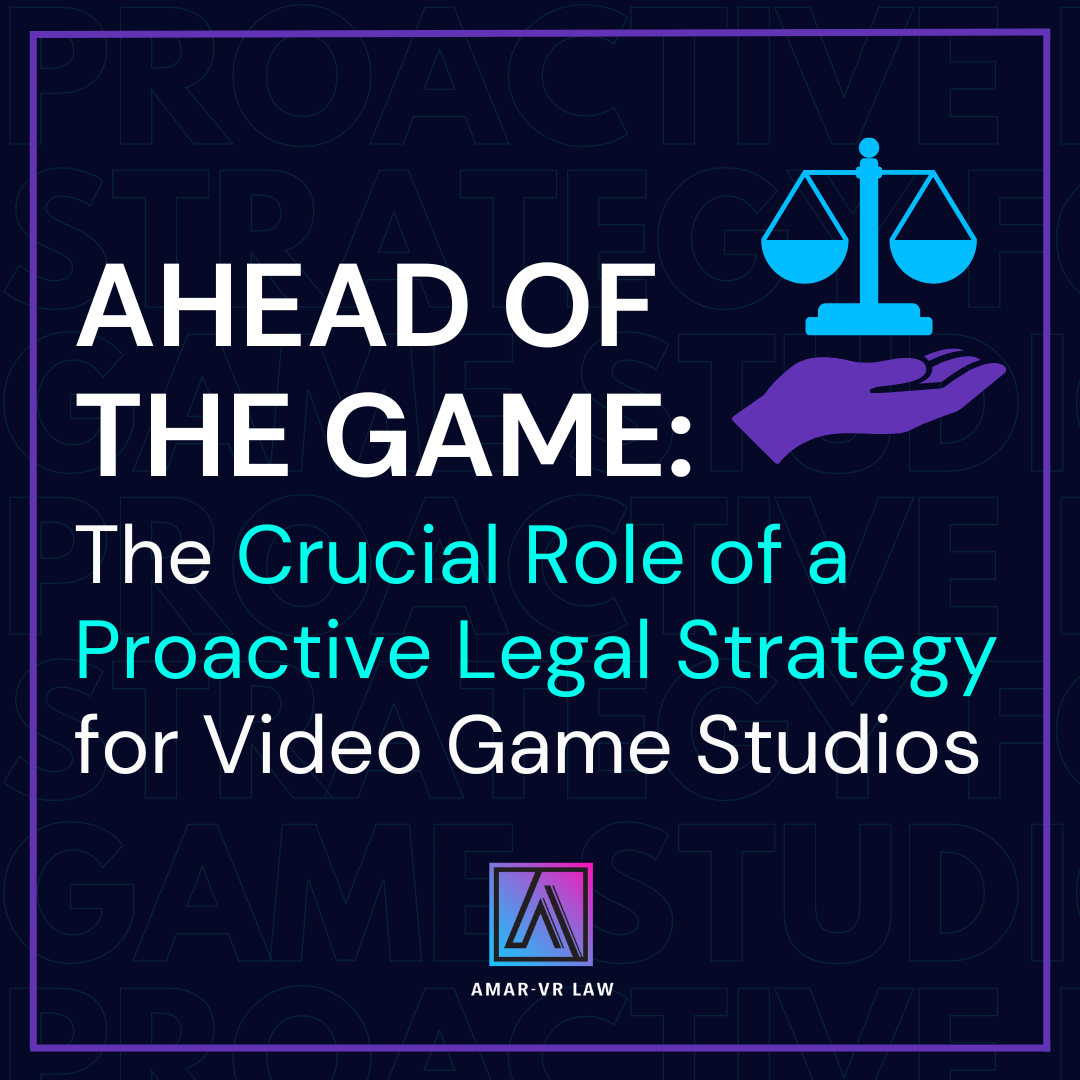
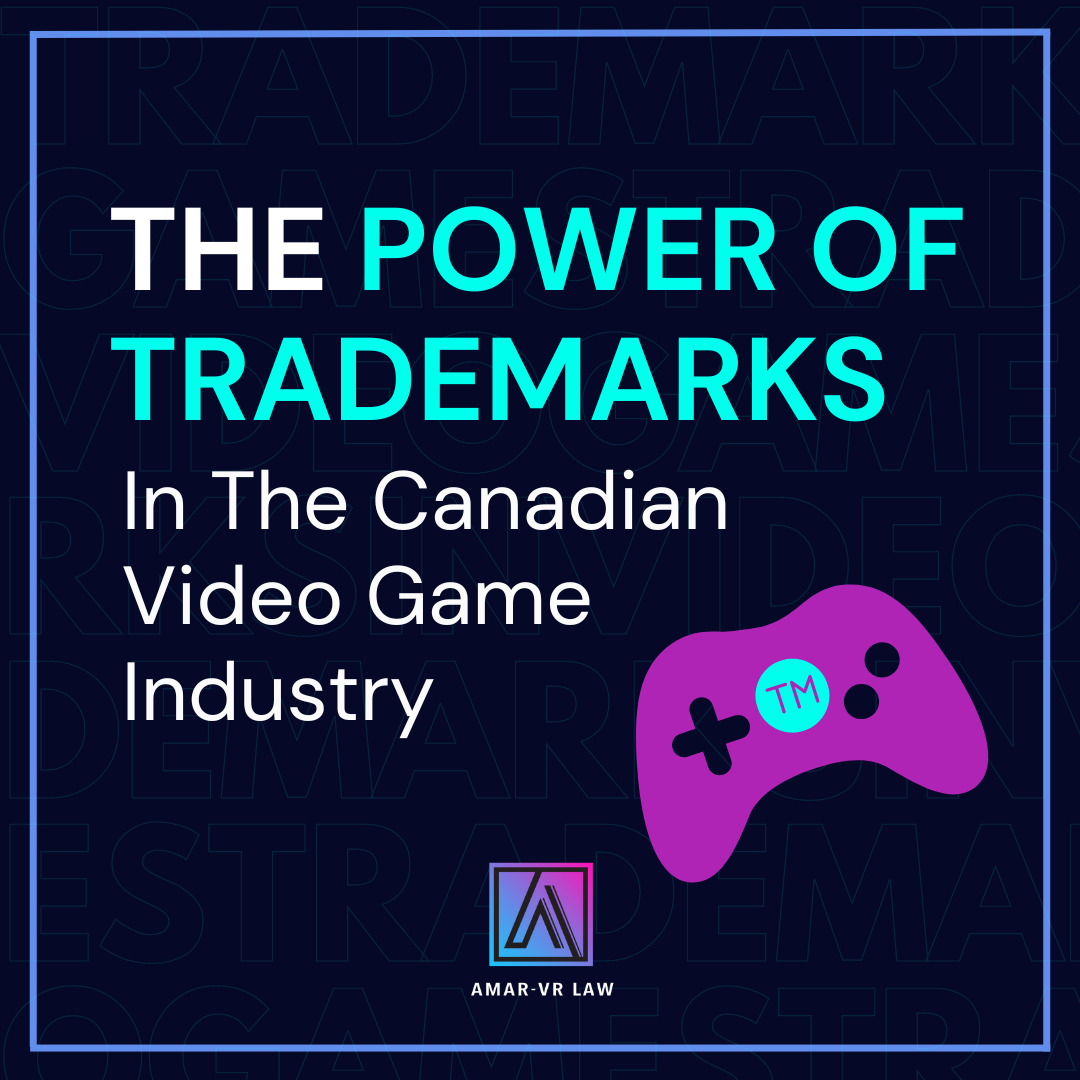
Address:
100 King Street West,
Suite 5700
Toronto, ON
M5X 1C7
Email: hello@amarvrlaw.com
Phone: 289-919-5929
Business Hours:
Monday: 10:00 AM – 6:00 PM
Tuesday to Friday: 9:00 AM – 5:00 PM
Saturday 9:00 AM – 12:00 PM
Address:
100 King Street West,
Suite 5700
Toronto, ON
M5X 1C7
Email: hello@amarvrlaw.com
Phone: 289-919-5929
Business Hours:
Monday: 10:00 AM – 6:00 PM
Tuesday to Friday: 9:00 AM – 5:00 PM









